The value of RPG board games is being recognized by dozens worldwide. These games are an incredible source for building SEL (Social-Emotional Learning) skills among children.
They contain the valuable elements of relationship building, collaboration, and creativity which helps individuals master these key qualities and implement them in real-world settings.
Introduction
When the COVID-19 pandemic hit, it did more than just damage the economic situation of countries worldwide. One of the major impacts it had was on young kids and their ability to learn as it was dulled by the pandemic-induced social isolation.
However, educational RPG games can save the day as they are the perfect tools to introduce and teach SEL skills to kids and young adults. Not only do these skills make kids more self-aware, but they also help them develop positive relationships, show empathy, manage emotions, and make positive decisions.
Learning these skills can be tough work today however, table-top role-playing games (TTRPG games) provide a perfect interactive platform through which kids can develop SEL skills while having fun.
Let’s dive deeper into RPG board games and their benefits while taking a look at how they impact social-emotional skills and boost problem-solving skills for children worldwide.

Defining Social-Emotional Learning and Its Significance
Before we dive into the impact of TTRPG games, let’s talk about SEL (Social-Emotional Learning) and its significance in the modern world.
Social-Emotional Learning (SEL) is defined as a methodology that allows children of all ages to understand their emotions and feel them completely. These skills allow children to develop empathy and demonstrate it, resulting in positive and responsible decisions.
Once children develop SEL skills, they can build positive lasting relationships with others as well as build frameworks to achieve their goals. The world of SEL contains five key elements that can be applied in both real-world settings as well as classrooms.
These five elements are:
1. Self-awareness:
Self-awareness governs how children recognize their emotions and how it impacts their behavior. Coming to grips with their strengths and weaknesses will allow children to gain confidence in their abilities.
2. Self-management:
This is one of the most vital SEL skills, as it allows kids to gain control of their thoughts and emotions. This comes in handy in various settings, and even when working towards key life goals.
3. Social awareness:
Awareness of the social settings around us helps to act with empathy in various situations whether at school or home. If your child can put themselves in the shoes of another person to understand how they’re feeling, they’re doing it right!
4. Relationship skills:
Healthy relationships are built through communication, peaceful resolution, and knowing when to ask/receive help from those around you. Through SEL skills, children learn to build lasting relationships with people from various backgrounds.
5. Making responsible decisions:
Choosing how to act or respond to a situation is based on learned behaviors such as ethics, safety, weighing consequences, and the well-being of others, as well as yourself.
Children`s development of social and emotional skills at preschool age is critical for long-term school and life success. While the value of SEL skills is acknowledged by society as well as schools, very few schools have integrated SEL skills as part of their school curriculum.
This makes it vital for children to engage in RPG games as they focus on developing these vital skills that can serve as a catapult to success for children of all ages.
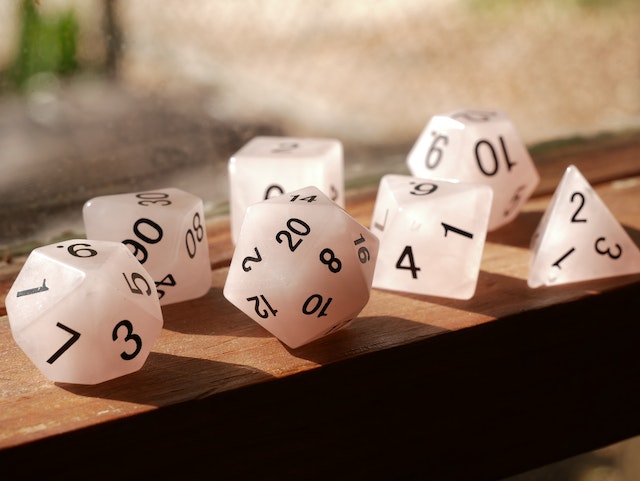
Exploring the Benefits of RPG Board Games in SEL Education
So, what are RPG board games, and what benefits do they provide? In simple terms, they are imaginary settings where players imagine that they are a certain character that has to achieve a specific goal.
The game is often governed by a ‘referee’ who may also set and narrate the scene (like in Dungeons and Dragons). These referees often also roleplay other characters not being played by the players in the game.
The best part of these games is that they are unpredictable. Unlike stories, there is no fixed setting or known ending. The games can take surprising twists depending on the creativity of the characters.
These TTRPG games are closer to ‘improv’ acting. The outcomes in these games are often decided by a roll of a dice, allowing players to use their creativity and adapt quickly.
However, one key question remains – Is it beneficial to roleplay in education? The answer is a big yes! Not only do these educational RPG games provide vital SEL skills, but they also improve overall grades and attendance (an 11% increase!).
If you dig deeper, you’ll also find that these games help children learn to cope with stress, solve various problems, and even avoid peer pressure to engage in dangerous activities.
This allows children to make logical choices that will benefit them when faced with problems, and this translates into handling the pressures of adult life in a sophisticated manner.
In a nutshell, the benefits of RPG games include but are not limited to:
- Better self-control
- Increased empathy
- Ability to handle challenging situations
- Development of ‘soft skills’ like teamwork
- Problem-solving skills
- Handling stress better
- Ability to make logical choices
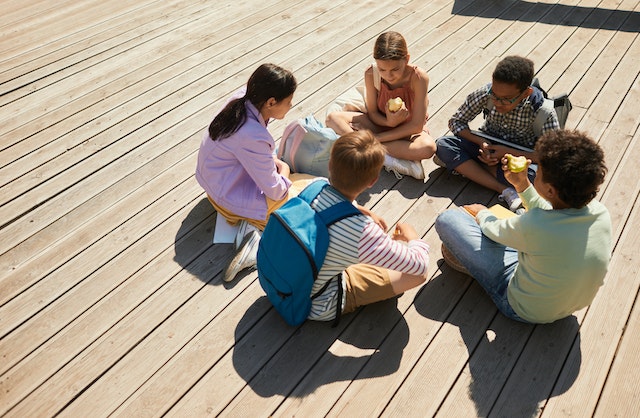
Collaborative Gameplay in RPG Board Games
The reason these TTRPG games are so beneficial is that children enjoy playing them, making them a useful avenue for teaching SEL skills.
The games are inherently competitive but also incredibly cooperative. Children playing these games will find that the best way to chart a path to victory is to work in collaboration with other players.
In these role-playing games, negotiation is a key aspect, as highlighted by several D&D players.
The impact of this goes far beyond the game in itself. These games provide kids with the ability to negotiate with those around them and cooperate in ways that can lead to joint success.
In real life, not everyone has to lose, and working together can help individuals achieve great success together.
The collaborative gameplay in these RPG board games allows children to do this and this can have positive impacts on their lives as well as provide the multi-faceted benefits of collaborative learning.
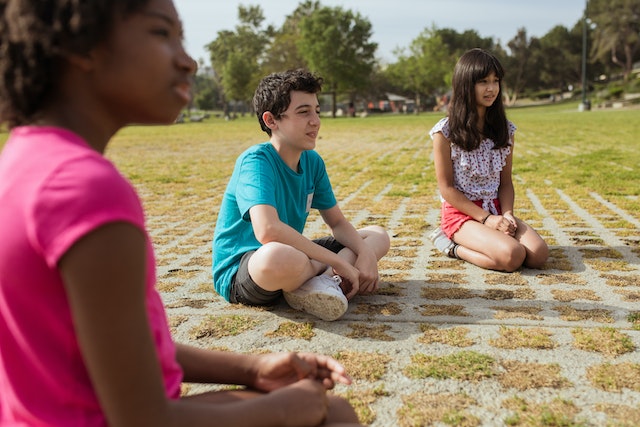
Learning Problem-Solving Skills through RPGs
Not only do educational RPG games provide collaborative skills, but they also boost problem-solving skills in children of all ages. In these games, children encounter various challenges that require them to put their minds to the test.
For example, one of the main goals in RPG board games is to figure out how to get to the next level in each scenario. This often requires breaking down a complex problem into smaller pieces to understand the requirements of reaching the next level.
The problem usually consists of tricky puzzles or complex storylines that put the child’s creativity to the test. Children will have to be bold and try different tactics to find the correct solution. If children successfully carry over this skill to real-world settings, it has a hugely positive impact.
Furthermore, these games encourage children to think ahead and anticipate future problems so that they can navigate their journey successfully. Finally, children are encouraged to take risks and try new methods to find their way across challenging situations.
These are all vital problem-solving skills that can be carried over and provide a great advantage to children in whichever area of their lives they apply them. Tabletop role-playing games certainly have a positive effect on student academic performance as well.
This encourages roleplay in teaching and shows teachers/parents that SEL skills can be developed while having fun!

Practical Strategies for Implementing RPG Board Games for SEL in the Classroom
Roleplay in teaching is an excellent way for teachers to help children develop vital SEL skills. The thing is SEL isn’t a designated subject like history or math that can simply be added to a school’s curriculum.
Of course, educators do their best to try and include academic lessons that display the importance of these SEL skills but because of their academic nature, students may feel less inclined to participate in them.
However, TTRPG games offer a fun avenue for teaching these SEL skills, making it vital for teachers to include roleplay in education.
Several different approaches can be implemented to add roleplay in teaching to develop these skills:
- Some teachers designate a specific slot in school hours to only focus on roleplaying to teach SEL skills.
- Teachers can incorporate the elements of TTRPG games into a single lesson by allowing children to roleplay different ongoing situations.
- Teachers can ask children to write a journal about their thoughts or feelings and share them, and then these can be discussed through roleplay. Certain situations can even be acted out for positive results!
- Roleplay in education can also be included in more formal subjects like history. Group projects can be assigned in which children are asked to roleplay old historical figures to understand their viewpoints/actions.
- Goals can be set for students in areas where they need improvement and teachers can help them chart their progress, allowing children to feel a sense of accomplishment (something they carry over to other areas of their lives).
- Students of all backgrounds can be provided the opportunity to play roles so they can learn that, despite their perceived differences, they are valuable as individuals, and are more alike than they think.
By building a sense of empathy, self-awareness, and feelings of safety and inclusiveness in the classroom, SEL can have a positive impact that lasts a lifetime.
Conclusion
The importance of RPG board games to develop Social Emotional Learning skills is clear. Teachers worldwide are beginning to grasp the power of these games in teaching these skills and are quickly including them in their curriculums.
These activities can be taught in small groups during break times, morning classes, or even as an end-of-the-week reward (as children thoroughly enjoy them!) These TTRPG games provide children with a magnificent fun way of developing these skills, a luxury that wasn’t available to previous generations.
Through these games, kids will have fun, and you’ll know that they’re developing serious SEL skills that will have a positive impact on their lives!

Farah Jassawalla is a technology enthusiast with a keen interest in AI, ML, and anything digital. Her passion for technology extends into her work as she currently manages the blog and social media for one of Canada’s most awarded tech and IT companies, in addition to consulting and writing for other brands. She’s an avid reader, writer, and researcher who is always looking out for the next big update in the digital world.


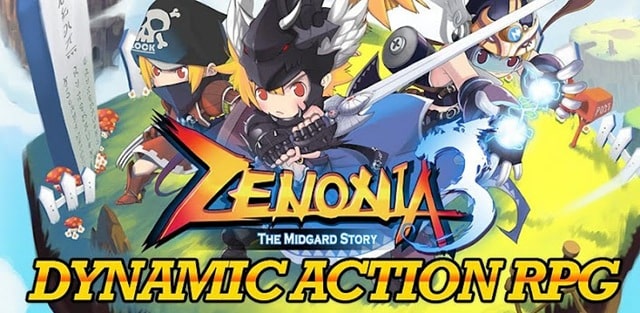







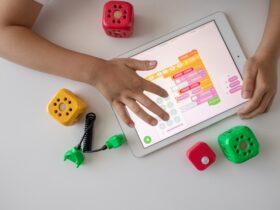

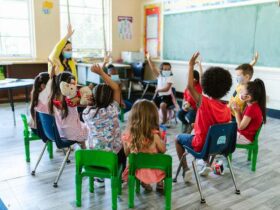

Leave a Reply